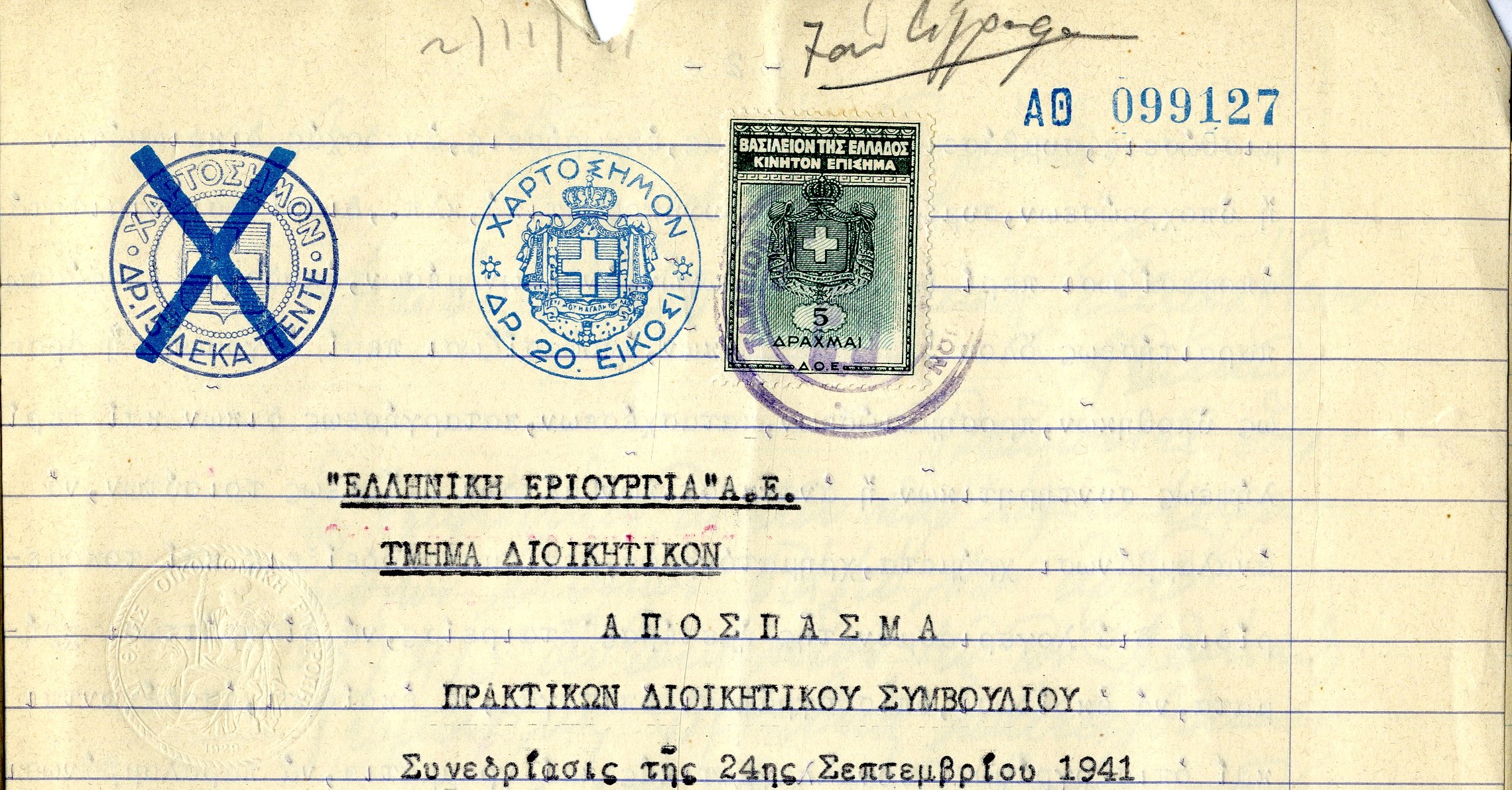
Michalis Sarras
Department of Archive Processing
From the archive of the the company of G.Souvatzoglou, who was the representative in Greece of the biggest English spinning-machinery industries from the late 1920s until the late 1960s, we learn of a meeting which took place in Athens on 14 July 1941 (document 1). Only a month and a half after the Germans had consolidated their sovereignty over Greece (20 May- 1 June 1941, Battle of Crete), they invited on their own initiative the members of the Federation of Greek Textile Industries to hear Dr Schubert and the high-ranking Wehrmacht officer Kreuzer (formerly technical director of the Greek Wool Industry in Athens) .
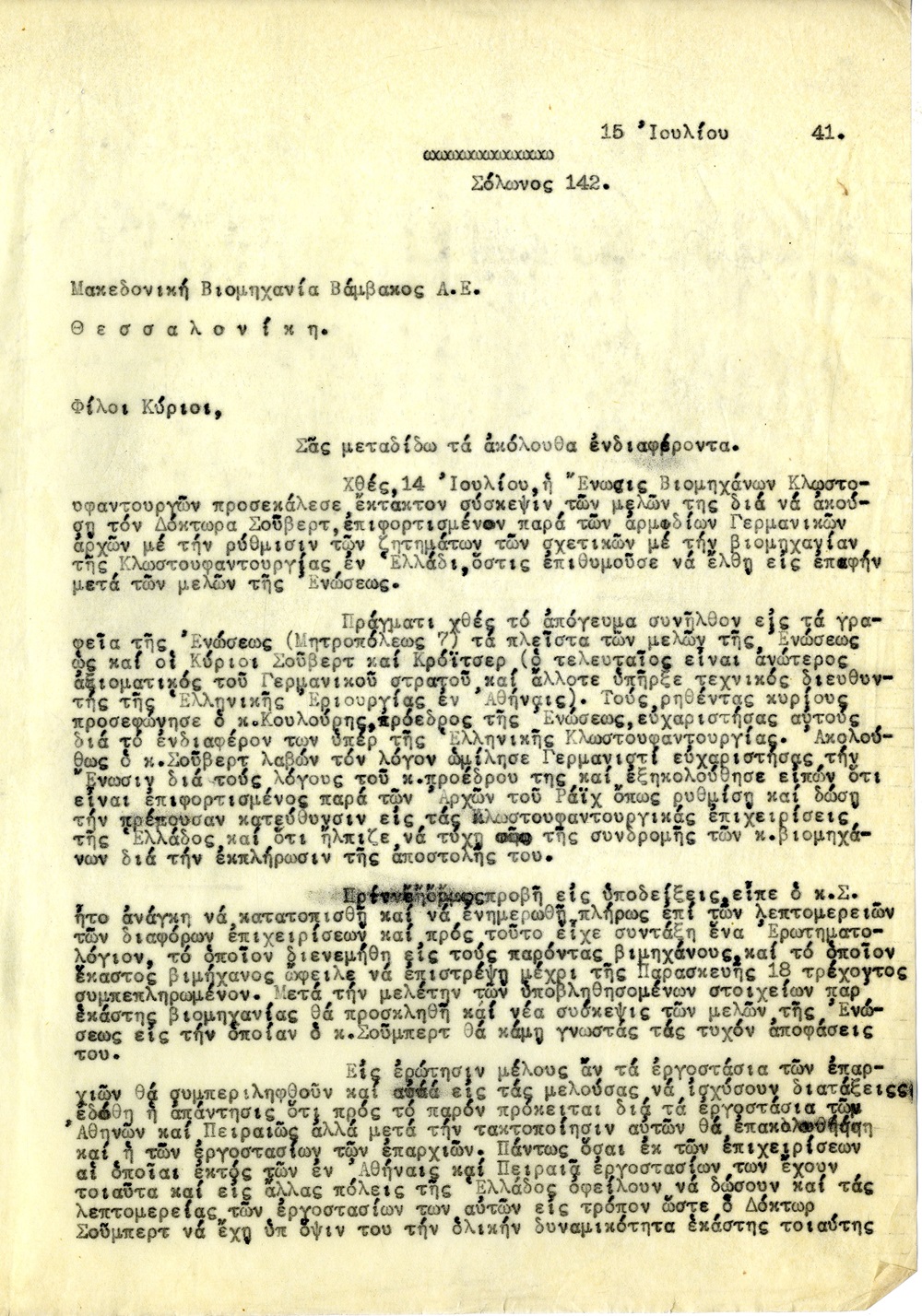
Document 1
Document from the company of Georgios Suvatzoglou to the Macedonian Cotton Industry S.A. Thessaloniki, 15 July 1941
GSA- Central Service, Archive of the George Suvatzoglou Enterprise, 1910 – 1981.
In his speech Mr. Schubert mentioned that “he had been entrusted by the Reich’s Authorities” with giving the “proper” direction to the country’s textile-companies. To this purpose he had drawn up a questionnnaire, which was handed out to the industrialists and had to be completed within a short time. The questionnaire was to inform the occupation authorities of each factory separately as well as of the reserves of yarn and raw materials.
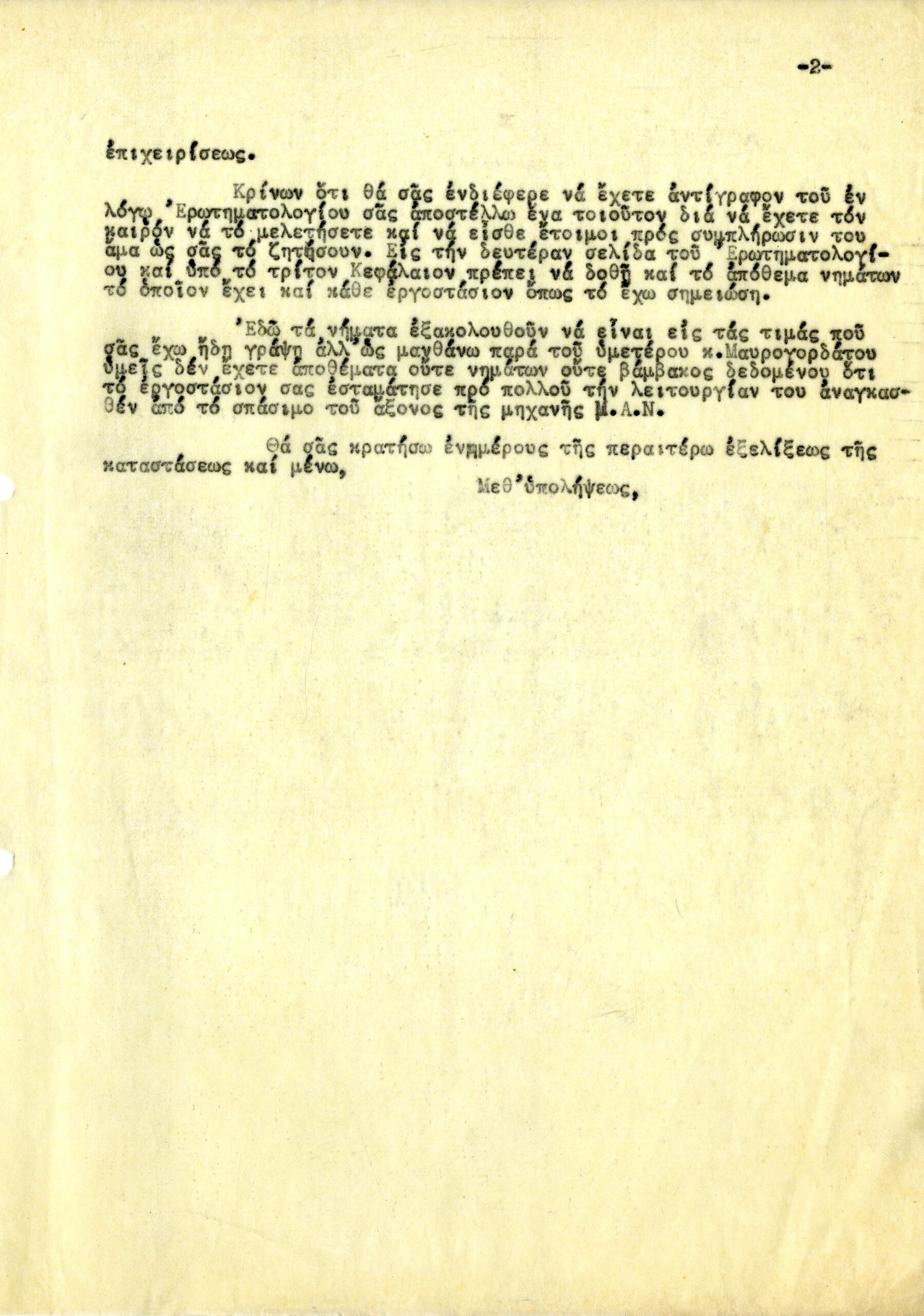
Document 2
Document from the company of Georgios Suvatzoglou to the Macedonian Cotton Industry S.A. Thessaloniki, 15 July 1941
GAK – Central Service, Archive of the George Souvatzoglou Enterprise, 1910 – 1981.
It is obvious that such meetings formed part of the Germans’ attempt to put Greek industry, as well as the industry of every occupied country, in the service of the needs of their war economy. To achieve this goal they used every possible means: commercial agreements with Greek industialists, seizures, expropriations, the control of companies’ Boards of Dorectors (document 2), the extension of German companies to Greece, long-term contracts. Besides, textile companies appear to have contracted to attend to orders put by the German army and ran normally or almost normally during the Occupation. Possibly, wider research in the archives of textile companies will reveal further details concerning the regime under which they ran.
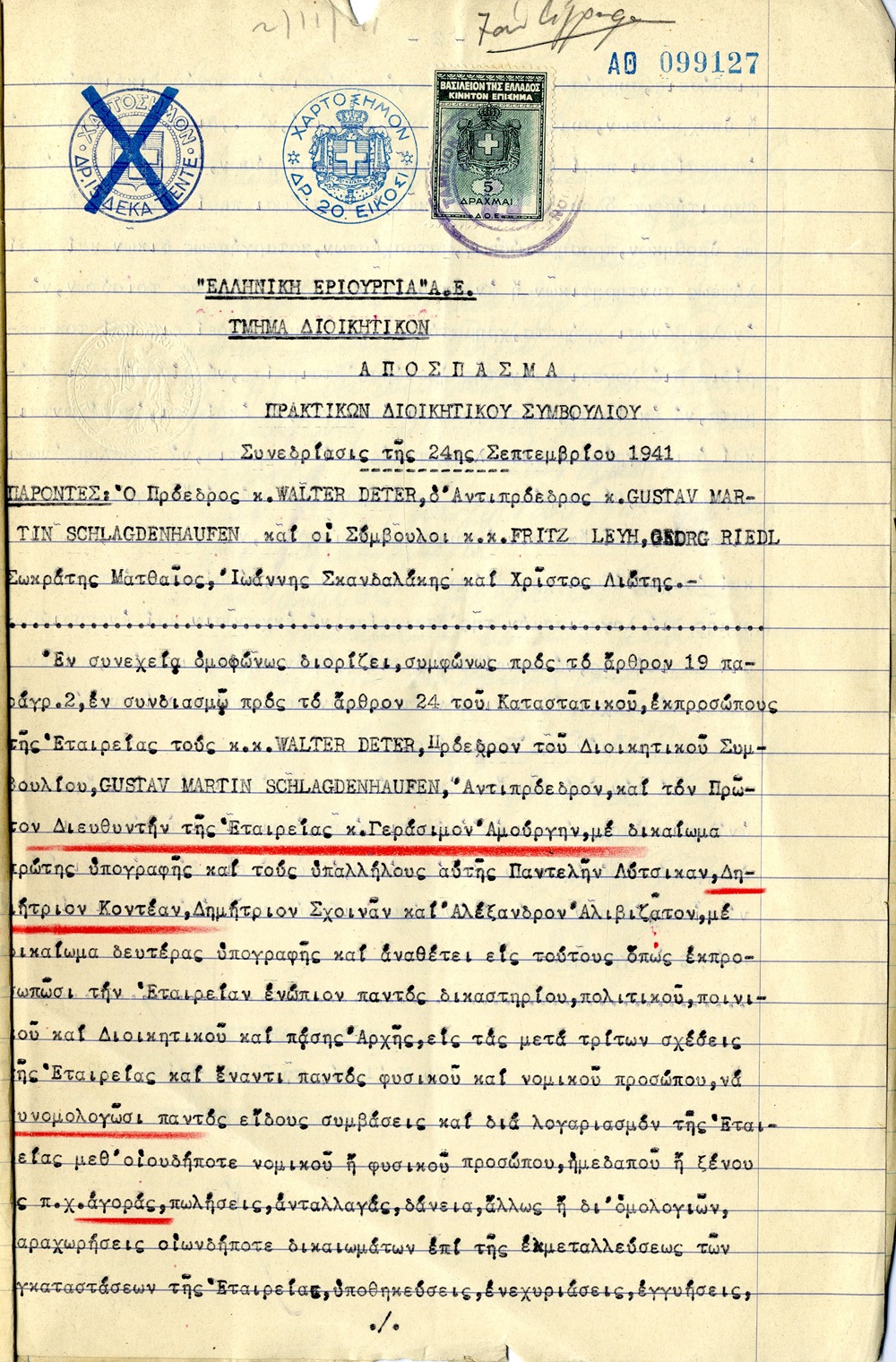
Notarial deed of sale of a car between the adviser of the German Embassy in Athens and the General Director of the company Hellenic wool-working S.A., 24 September 1941
GSA- Central Service, Archive of the Athens Notary Public Gerasimos Skiadaressis, 1913-1954.
It is also known that businessmen familiar with the Balkan area had been detached to the Financial Staff of the Wehrmacht’s Supreme Administration and had undertaken the directorship of various companies, and of course of textile factories. The reserves of all those factories, such as skins or leather, textiles, yarn etc, were expropriated or bought at pre-war prices in conditions of galloping inflation. This policy of “marauding” and plunder had disastrous consequences for Greek economy and was one of the main causes of the great occupation famine in Athens and in other towns and areas of Greece.

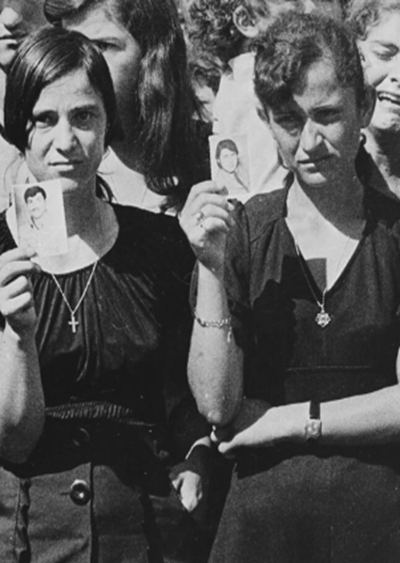





Leave A Comment